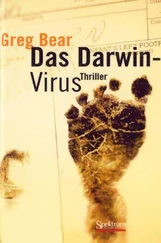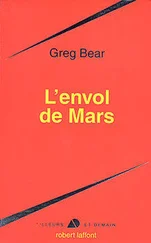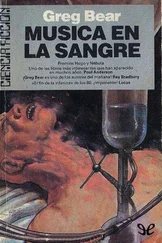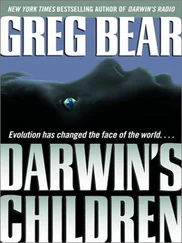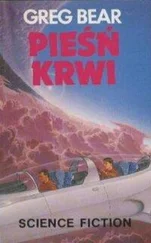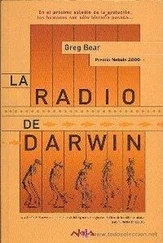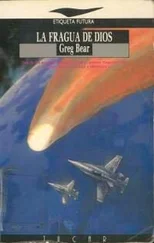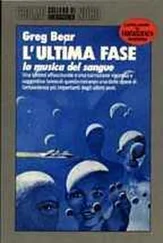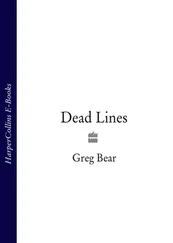“Sir Basil Liddell Hart’s Strategy. ”
“I’ve read it,” Rotterjack said.
“You’re crazy,” French said. “You’re all bleeding crazy!”
“We have the incident on tape,” Forbes said, holding up his hands to calm his colleagues. “We must review it. We can see if any projectile or weapon struck them.”
Arthur knew very well he was not crazy. It was making sense to him now. “I’m sorry,” he said. “I’ll explain when everybody’s in a better frame of mind.”
“ Fuck that!” Bent said, regaining some composure. “I want the physics group out here immediately. I want a message sent to the Rock now. If there’s a war beginning here, let’s not give the impression we started it.”
“We’ve never sent or received transmissions from the Rock,” Forbes said, shaking his head.
“I do not care. Send transmissions, as many frequencies as we can handle. This message: ‘Not responsible for destruction of envoys.’ Got that?”
Forbes nodded and returned to the trailer to relay the orders.
“Mr. Gordon, I’ll try very hard to put myself in a suitable frame of mind. What the hell has strategy to do with this?” Bent asked, standing on the opposite side of the three craters.
“The indirect approach,” Arthur said.
“Meaning?”
“Never come at your adversary from an expected direction, or with your goals clear.”
Bent, whatever his state of mind, caught on quickly. “You’re saying this has all been a ruse?”
“I think so.”
“But then your Guest is a ruse, too. Why would they tell us they’re going to destroy the planet, and then make that seem like a sham…tell us they’re going to save us, and that’s a sham, too?”
“I don’t know,” Arthur said. “To confuse us.”
“Goddammit, man, they’re powerful beyond our wildest dreams! They build mountains overnight, travel across space in huge ships, and if what you say is true, they dismantle whole worlds — why bother to deceive us? Do we send greetings to bleeding ants’ nests before we trample them?”
Arthur could not answer this. He shook his head and held up his hands. The heat made him dizzy. Oddly — or not so oddly — what worried him most now was how the President would react when he learned what had happened here.
“We have to talk to Hicks first,” he told Rotterjack as they climbed aboard a truck to be taken back to the outer perimeter.
“Why? Aren’t we all in enough trouble already?”
“Hicks…might be able to explain things to the President. In a way he’ll listen to.”
Rotterjack lowered his voice to a whisper in the back of the vehicle. “All hell’s going to break loose. McClennan and Schwartz and I will have a real fight…Whose side are you on?”
“I beg your pardon?”
“Are you voting for Armageddon, or do we have a chance?”
Arthur started to reply, then shut his mouth and shook his head.
“Crockerman’s going to flip when he hears about this,” Rotterjack said.
Arthur called Oregon from Adelaide’s airport while waiting for the Army limo to pick up the United States group. He was exhausted from the day and the long flight back. It was early in the morning in Oregon and Francine answered with a voice full of sleep.
“Sorry to wake you,” Arthur said. “I’m not going to be able to call for a couple of days,”
“It’s lovely to hear from you. I love you.”
“Miss you both desperately. I feel like a man cut loose. Nothing is real anymore.”
“What can you tell me?”
“Nothing,” Arthur said, pinching his cheek lightly.
“Well, then, I’ve got something to tell you. Guess who called?”
“Oh, I don’t know. Who? Not—”
“You guessed it. Chris Riley. He told me to write it down. ‘Two new unusual objects the size of asteroids have been discovered, each about two hundred kilometers in diameter. They have the albedo of fresh ice — almost pure white. They are traveling in highly unusual orbits — both hyperbolic. They may or may not be huge, very young comets.’ Does this make any sense to you? He said it might.”
“Fragments of Europa?”
“Isn’t this romantic?” Francine asked, still sleepy. “He said you might think that.”
“Go on,” Arthur said, his sensation of unreality increasing.
She continued to read the message. “’If they are fragments of Europa, they are traveling along virtually impossible paths, widely separated. One of them will rendezvous with Venus next year, when Venus is at…’ Just a second. Got another page here…’at superior conjunction. The other will rendezvous with Mars in late 1997.’ Got that?”
“I think so,” Arthur said.
“Marty’s asleep, but he told me to tell you that Gauge will now sit and heel at his command. He’s very proud of that. Also, he’s finished all the Tarzan books.”
“Attaboy.” His eyes closed for a moment and he experienced a small blackout. “Sweetheart, I’m dead on my feet. I’m going to fall over if I don’t get to sleep shortly.”
“We both hope you’re home soon. I’ve gotten used to having you around the house. It seems empty now.”
“I love you,” Arthur said, eyes still closed, trying to visualize her face.
“Love you, too.”
He climbed into the limo beside Warren and Rotterjack. “What have you heard about two ice asteroids?” he asked them.
They shook their heads.
“One will probably resurface Venus, and the other will wreak havoc on Mars, both next year.”
Warren, despite his exhaustion, gaped. Rotterjack seemed puzzled. “What’s that have to do with us?” he asked.
“I don’t know,” Arthur replied.
“Funny damned coincidence,” Warren said, shaking his head.
“They’re going to hit Venus and Mars?” Rotterjack asked, the implications sinking in slowly.
“Next year,” Arthur said.
The presidential science advisor drew his lips together and nodded, staring out the window at passing traffic, light this late hour of the evening. “That can’t be coincidence,” he said. “What in the name of Christ is going on?”
November 1, Eastern Pacific Time (November 2, (ISA)
Walt Samshow moved with a long-accustomed grace on the ladders of the Glomar Discoverer, sliding his hands along the rails as his feet pumped in a blur down the steps, stuffing his chin into his clavicle to remove his leather-brown, freckled, and sun-spotted bald pate from the path of passing bulkheads. Whatever effects of age dogged him on shore vanished; he was more spry at sea than on land. Samshow, a long-legged, narrow-faced beanpole of a man, had spent more than two thirds of his seventy-one years at sea, serving ten years in the Navy from 1942 to 1952, and then moving on to forty years of research in physical oceanography.
Deep in the ship’s hold, spaced across an otherwise empty cargo bay, were his present crop of children: three upright, man-high, steel-gray cylindrical gravimeters measuring the gravity gradients of the trench ten thousand meters below. The Discoverer was on its sixth pass over the Ramapo Deep. The sea outside the hull was almost glassy, and the ship moved forward at a steady ten knots, as stable as bedrock, ideal for this kind of work. They could probably get accuracy to within plus or minus two milligals over the average of all six runs.
Samshow descended into the hold, his feet hitting the cork-covered steel deck lightly. His much younger partner, David Sand, smiled at him, face a corpselike green and purple in the glow of the color monitor. Samshow presented the covered aluminum plate he had carried down from the mess.
“What’s the bill of fare?” Sand asked. He was half Samshow’s age and almost half again his weight, strong and wide-faced, with eyes pale blue, a tiny Scots button of a nose, and a full head of wiry auburn hair. Samshow removed the plate’s cover. Deep in the elder oceanographer’s thoughts, Sand had become one of many sons; he treated younger assistants with the tough-minded affection he would have bestowed on his own child. Sand knew this, and appreciated it; in his entire career, he would probably have no better teacher, partner, or friend than Walt Samshow.
Читать дальше

